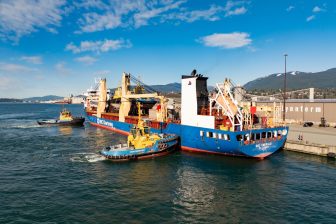
2,000 redundancies at Maersk, Safmarine and Damco cease to exist
Maersk is laying off 2,000 employees as a result of the large-scale reorganisation that started at the beginning of September. The end of Damco had been in sight for some time, but the Danish shipping company has now made it official. Subsidiary Safmarine is also being dissolved as an independent brand.
The shipping company expects the costs of the reorganisation in connection with the redundancies of the approximately 2000 workers, amounting to approximately USD 100 million, to impact the third quarter of 2020. The reorganisation stems from the aim of CEO Søren Skou, who took office four years ago, to structurally improve Maersk’s results and share price. Neither has so far really succeeded. Skou is constantly insisting that Maersk must continuously improve efficiency.
Safmarine and Damco
The main elements of the operation are the integration of the South African shipping company Safmarine into Maersk Line and the transfer of all air cargo and groupage activities from Damco to the Maersk logistics arm.
By dissolving Safmarine and Damco, the failed strategy of developing the former Dutch freight forwarding company into a leading global logistics service provider comes to an end once and for all.
Outlook
Skou says that ‘the outlook for 2021 remains uncertain because of the ongoing pandemic. Potential new lockdowns will affect demand. Also, the timing and effectiveness of a possible vaccine will affect 2021’.
The company now reports an expected turnover of USD 9.9 billion and Maersk expects an operating profit (ebitda) of USD 2.4 billion for the third quarter of 2020. This result does not include the costs of the reorganisation. Ocean freight volumes decreased by approximately 3 per cent in the third quarter of 2020 compared to last year.
Maersk expects the operating result (ebitda) for the full year 2020 to be between USD 7.5 and 8 billion, again excluding the costs of the reorganisation.
This article first appeared on Nieuwsblad Transport, a Dutch sister publication of PCJ.
You just read one of our premium articles free of charge
Register now to keep reading premium articles.




